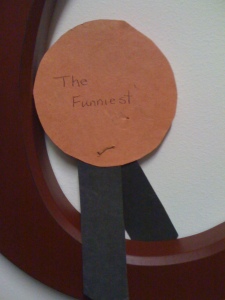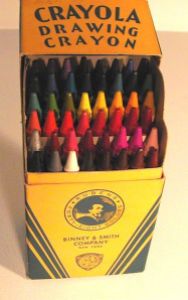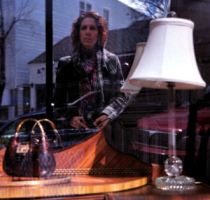Guest Writers
Mrs. Schmidt's Wonderful World: Guest Post by Kathy English
My guest blogger today is Kathy English who recalls a wonderful self-contained sixth grade classroom experience for her #TWITS memory….
Hidden Potential: Guest Post by Saucy B.
My guest writer today is Saucy B from The Life and Times of a Self-Proclaimed Saucy Bitch….
If You're Lucky: Guest Post by Chase McFadden
Today’s guest blogger sharing his teacher memory for #TWITS is the amazing Chase McFadden from Some Species Eat Their Young. I don’t know how I first stumbled upon Chase’s stuff, but I subscribed immediately. I honestly get giddy when his posts roll in. Chase is a comic genius. He’s got like forty-two kids, and he lives on this farm where everyone is always filthy all the time. Or else they are wielding light sabres. Or trying to dig up enormous rocks. Excellent, right?…
Lessons From Mrs. Gurney: Guest Post by Penny Thoyts
My guest writer today is Penny Thoyts. She’s bopped over from across the pond to tell us about her favourite teacher, Mrs. Gurney….
The Good, the Bad & the Naughty: Guest Post by Paul Waters
My guest blogger today is Paul Waters, the snappy brain behind the lovely blog called blackwatertown. Paul went off-roading a bit and instead of writing about just one teacher memory, he wrote about a few: one good, one bad, and one naughty. Half the fun is in figuring out which is who. …
Not To Be Trashed: Guest Post by Mary Mollica
Today’s guest blogger is my old friend, Mary Mollica whom I have known since 1975 when we found each other in 2nd grade. Today, Mary recalls our most excellent high school art teacher, Carl Wenzel. She’s not lying about his quirky-awesomeness. My homeroom was next door (in the other art room) but I often hung out in his room. With one quick lesson, he helped Mary save something that she almost threw away. He may not remember doing this, but his words and actions changed her life….
My First Grade Teacher Must Have Had Stock In Crayola: Guest Post by Mark Kaplowitz
My guest blogger for #TWITS today is Mark Kaplowitz. I started cyber-crushing on MarKap the minute he came onto the blogging scene. Many of his earliest pieces were Gen X type pieces that made me remember lunchboxes and action figures. His writing is punchy and hilarious. I can’t understand why he hasn’t been discovered and published already. I would totally buy his books. (You hear that publishers? He’s already sold one copy!)…
Damage Done: Guest Post by Leonore Rodrigues
Today’s guest blogger is Leonore from As a Linguist. Leonore and I connected because of our love of language, weird words and proper punctuation. As it turns out, we have quite a few real life things in common. We are both pretty OCD, and we both love Wuthering Heights. Wait, I think she loves Wuthering Heights. Now I’m all confuzzled. Wait, that’s a made up word. Leonore might not like that very much….
Those Who Can't Teach: Guest Post by Tamara Lunardo
Tamara Lunardo is my guest blogger today. Where I sometimes get mired in the details, Tarama is a big picture kind of girl. Tamara’s writing is as fresh, edgy and vibrant as she is. Gentle and compassionate, Tamara (pronounced Ta-MAH-ra) is a wonderful read. Note: Just don’t mispronounce her name or call her Tammy or she’ll punch you in the throat. Here is her teacher memory….

Annie Wolfe from Six Ring Circus is my guest blogger today, and she has a great teacher memory. But before we get to that, a little hoo-ha about Annie. Annie went to college, locked eyes with a handsome man in her anatomy class, and they got to studying anatomy.
I mean, they got married.
Before she knew it, she was a stay-at-home mother to four energetic children. (She was very fertile.)
These days Annie writes about her children — Speedy, Princess, Dictator and Taz , and I must say, they make great material. Annie’s circus resides in the Heartland, where life should be simple but, with a family of six, life rarely is. I don’t know how she does it; I’m just glad she does. Read her post, check out her blog, and if you like Twitter, you can follow her @Annie6rc.
• • •
The Day Mrs. Dean Saved My Life
I’m a school-loving nerd. The intense grin on my face in that photo says it all. (My mom made those sweet culottes and the handkerchief shirt.) I ran eagerly to my first day of kindergarten, nap mat in hand. There was never a day I didn’t want to go to school.

I will always remember my first grade teacher, Mrs. Dean. Mean Mrs. Dean had a reputation with the other children for being tough. When I heard she was going to be my teacher I shuddered a little. She had the look of a mean old troll. I was sure I wouldn’t like her.
I was a studious child, very organized and task driven. I liked to get things done, but I worried I might not live up to grumpy old troll standards.
I quickly fell in love with Mrs. Dean’s no-nonsense attitude. She had eyes in the back of her head. While writing on the chalkboard, she could easily call by name and reprimand a troublemaker. Her head did not even swivel around slightly. To me, this was proof of her supernatural troll-like powers.
Troll or not, I felt so comfortable next to her stocky frame. I did not have to look very far up to find her crinkled face. She cackled when she laughed. I really loved her ability to run the classroom but I also grew to love her as a person. I specifically remember the day I fell in love with her heart.
We had a classroom reading chart with stickers to mark our progress. Once you had enough stickers, you got a free book. I was a crazy-obsessed reader and the idea of a book for a prize was incredible. I had a list of books to mark on the chart but I had to wait in line at Mrs. Dean’s desk to get my stickers. I was in the middle of the line and I had to pee so badly. I didn’t want to leave to go to the bathroom and return to stand at the very end. I was anxious.
I danced the clench-my-thighs-knee-wiggle dance. Finally, the call of nature could not be ignored. I dashed to the bathroom and hurried to pull down my pants. A warm rush was met with panic in my heart. I tried desperately to dry my pants with toilet paper. I stuffed ridiculous amounts of it into my underwear. It does no good to make a toilet paper diaper after you have peed yourself.
I remember whispering to the little girl in the mirror, “You’re going to have to be brave and go out there for help.” I was mortified. My entire class was lined up around Mrs. Dean. Everyone would know I had peed my pants like a baby.
I sucked in my breath and marched out to her desk. Mrs. Dean took my hand, told the class she would be right back, and walked me down the hall. She whisked me out so quickly, it saved me from much humiliation.
The feeling of my hand in hers was powerful. Her petite yet strong stature was reassuring. I know she comforted me with what she said, although the words are forgotten. Mrs. Dean didn’t make me feel stupid. She held my hand all the way to the office, where I called my parents.
I will always remember how she respected my feelings. She understood how potentially embarrassing the situation was for me. I wasn’t just a child to her, but a person to respect. I think sometimes adults marginalize issues that children find significant. A wise adult and excellent teacher can see things through the eyes of a child. Mrs. Dean was a very wise woman and most definitely an excellent teacher.
• • •
If you have writing chops and are interested in writing about a Lesson You Have Learned, I’d love to hear from you! Contact Me. Essays should be around 700-800 words.
If you write for me, I’ll put your name on my page of favorite bloggers!

My guest blogger today is Kathy English, one of the very first people I met in the Blogosphere. Or, I guess I was directed to her. Her blog, The Mom Crusades, is filled with funny peeves and basically daily, snarky observations about parenting. Kathy has had a tough year. Last November, her then 9-year-old son was diagnosed with a brain tumor. After surgery, hospitalization, radiation, chemotherapy and endless doctor’s appointments, some semblance of normalcy has been restored. Kinda. I was surprised and appreciative when Kathy volunteered to write a teacher memory. She has such an open heart.
• • •
Mrs. Schmidt’s Wonderful World
In sixth grade, I attended a school with three middle school grades sharing the high school building. As a new kid, I quickly learned to avoid the seniors’ hallway, to avoid the principal as he was quick to paddle students for wrong-doings (yes, principals were equipped with wooden paddles back in the day, and they used them). It was the first year I would rotate classrooms, and I had to memorize where all my classes would be and in what order.
I wasn’t ready.
By sheer rotten luck, I was placed in the class of a teacher who’d had one of my sisters a few years earlier. He was one of those people you look at and wonder, “How the heck did THAT guy ever get to be a teacher?” A toothpick grew permanently out of the corner of his mouth, he was sarcastic, and he talked to us with the vocal inflection that automatically let us know he thought we were “duh-mb.”
By sheer blessed luck, a counselor entered my room on the second day of school and asked for volunteers to switch into a self-contained sixth grade classroom in order to even out class sizes. My hand shot up in the air so fast, I felt like I could have touched the ceiling. I had chosen to sit in the back of the room, hoping to avoid the attention of the teacher, but there I was, practically jumping up and down in my seat, Arnold Horseshack style. (Young’uns can google that reference. He’s from the old TV show Welcome Back, Kotter!)
The counselor selected a handful of us, and we grabbed our books and headed down the hall to the wonderful world of Mrs. Schmidt, sixth grade teacher. Mrs. Schmidt was tall and slender, with wild red curly hair, and a commanding presence. She was ready for business from day one, and guided all of us with a firm hand, a sense of humor, and sternness when necessary.
While other kids might have thought it strange that we didn’t change classes or have different teachers, we were in our own little world with Mrs. Schmidt: caught in a happy cocoon of elementary school-like security and sixth grade learning.

During the last week of sixth grade, the school was prepared to hand out various awards at a school-wide assembly. The ever-perceptive Mrs. Schmidt knew that there would be many of us who – literally – didn’t make the grade and would not receive any of those awards. In my scrapbook, I still have four, faded-purple dittoed awards – outlined in crayon and glued onto construction paper, all made by hand and personally signed by Mrs. Schmidt. What are they for? “Scientific Achievement” and “Social Studies Skills”; another stated I was the “Royal Highness of Reading” and declared that I possessed the “Imagination to Travel anywhere and everywhere in the Kingdom of Infinity.” I also earned the award for “Clever Wit.”
Each of the 30 or so students in the class was given at least as many personal awards from Mrs. Schmidt, each read aloud joyfully before being presented, as if it were the first time our teacher had ever given such awards to anyone.
Mrs. Schmidt had a knack for making everyone feel special, for recognizing the individuality in each student and finding a way to nurture it. She was certainly a tough act to follow.
Every time end-of-the-year school award ceremonies roll around, I remember Mrs. Schmidt and how she found something personal about each of her students – to let them know they were recognized and appreciated.
Did you ever win any goofy awards at school? What did you win?

Do you wear reading glasses? If so, don’t forget to enter my reading glasses giveaway which ends December 16th. Details HERE.
• • •
My guest blogger today sharing her teacher memory is Saucy B. She pretends to be tough — she lives in northern New Jersey and claims if you call her a Jersey Girl, she will kick you in the shins — but for all her attitude, Saucy B comes with an enormous side order or good old-fashioned mama love.
I can relate to Saucy B’s story on one hundred levels. When she wrote this post and discussed how she was described by family members as “precocious” but school was academically challenging for her, I totally got it.
@SaucyB is currently taking a break from her blog, but I hope she will drop by to moderate comments. Her post speaks to so many people who have children who are struggling with school.
• • •
Hidden Potential
I was late bloomer when it came to academics. I was young for my grade; in fact, by today’s requirements, I wouldn’t have even been allowed to enter school when I did.
But, since I was rather precocious in nature – often described as being four going on forty by my relatives – my mother didn’t hesitate to enter me into kindergarten.
It’s not that I didn’t get good grades; it’s just that those good grades came as the result of a lot hard work, a little bit of sweat, and certainly a few tears.
I was in my comfort zone with reading and language arts. But math. Oh math. There’s a reason that when I entered college I was an English major with a minor in Communication. (Dear Rutgers University, thank you for dropping your quantitative requirement the year I entered your fine institution.)
Anyway, it was in fifth grade that students in my school system could be chosen to participate in a Gifted and Talented program that met on Saturday mornings called C.A.T. (I haven’t the slightest idea what that stands for anymore.)
While I recall being slightly disappointed that I didn’t get to participate in fifth grade, I wasn’t completely surprised either. I was doing well, but I certainly wasn’t pulling down straight A’s.
Things changed when I entered sixth grade and was in the class of the school’s only male teacher at the time, Mr. Adubato. This teacher really tried to bring new ideas and other ways of learning to the table. He recognized and encouraged my creative writing in a way that no one else had. And after the first marking period, he got me into the C.A.T. program.
I remember being so proud that as part of the program I got to “publish” my own book of short stories. In reality, my work had just been bound with a nice front and back cover by the school librarian. But, to me, it made me legit.
Today, I see my son, who is also young for his grade, struggling as well. Kindergarten was not an easy transition for him. He received basic skills help and was evaluated this summer by the school’s Child Study Team.
At the beginning of the year, I told his teacher, “There are no rose-colored glasses in this house.” And while I’m very much aware and recognize that my son has challenges, I also know that he is extremely bright and articulate. Collectively, we just have to figure out how to unlock the potential that I know is sitting poised and ready in his little body.
How am I so sure of this? Last weekend I had the privilege of transcribing a story that my son made up to go with a comic book he had drawn. He had numbered the pages, established heroes and villains, and formulated a plot with a distinct beginning, middle and end.
He just couldn’t write it.
Apparently, kids his age are supposed to be able to write some semblance of words based on how they sound. My guy isn’t even close to that yet. So we sat. And I told him the letters to write so that he could bring the story out of his imagination and onto the page.
I strongly suspect that things may get harder for my son before they get easier when it comes to his school work. But I hope he is fortunate enough to have a teacher that recognizes his unique capabilities the way Mr. Adubato recognized mine.
How much do you think a child’s age influences his or her academic performance? And what do you think about “gifted and talented” programs?
Enter my reading glasses giveaway which ends December 16th. Details HERE.
• • •
Today’s guest blogger sharing his teacher memory is the amazing Chase McFadden from Some Species Eat Their Young. Chase shares another blog with Leanne Shirtliffe — Stuff Kids Write. I don’t know how I first stumbled upon Chase’s stuff, but I subscribed immediately.
I honestly get giddy when his stuff rolls in. Chase is a comic genius. He’s got like forty-two kids, and he lives on this farm where everyone is always filthy all the time. Or else they are wielding light sabres. Or trying to dig up enormous rocks. Excellent, right?
I think somebody in that family is doing laundry at all times, but I’ll bet Chase is a good sport about it. He manages to find the rainbow behind every cloud. Or the pot of gold at the foot of every rainbow. Chase probably finds the leprechaun. You know what I mean? He’s that guy with the positive outlook. You should follow him on Twitter @Chase_McFadden. Don’t forget the underscore. If you don’t get it right, you’ll be following another dude.
And that would be unfortunate. And creepy.
• • •
If You’re Lucky
If you’re lucky, you have that one teacher during your formal education.
That teacher who genuinely believes she teaches people first, a subject second.
That teacher wise enough to realize that if you’re treated with basic human values — respect, empathy, and love – you’ll drink the Kool-Aid, no matter the flavor.
That teacher who takes a vested interest in you, outside of your ability to compose an expository essay or identify a poetic structure.
That teacher who is in the stands one Saturday when your team takes down the mighty Camels.

That teacher who greets you at the door Monday morning with a smile and asks about your weekend fishing trip.
That teacher who talks less and listens more.
That teacher who you don’t want to disappoint, which is powerful, because when you’re 17 or 18 you oftentimes aren’t thinking about disappointing yourself.
That teacher who instinctively understands that disappointment is a much more meaningful motivational tool than fear and crafts relationships accordingly.
If you’re lucky, you have that one teacher during your formal education who sees strengths and aptitudes in you that you may be unable – or unwilling – to recognize in yourself.
That teacher who gives you the freedom to explore.
That teacher who asks, “What do you want to write about?”
That teacher who hands back your collection of humorous fictional stories, the stories you worked on for the better part of your senior year, with a simple note attached: These are wonderful. You’re going to have the best-written reports in your firm.
That teacher who tries not to cringe when you tell her you are going to college to study engineering.
That teacher who knows that isn’t what’s in your heart, in your soul, but encourages you just the same.
That teacher who knows there are some things a person just has to figure out for himself.
If you’re lucky, you have that one teacher during your formal education who believes in you more than you believe in yourself.
I’m lucky.
I had Ms. Watne.
What did you think you wanted to be when you were in high school? Are you doing it?
• • •
If you have writing chops and are interested in submitting a memory about a teacher you had and can explain how that person helped you (or really screwed things up for you), as well as the life lesson you took away from the interaction, I’d love to hear from you! Contact Me. Essays should be around 700-800 words.
If you write for me, I’ll put your name on my page of favorite bloggers!

My guest blogger today is not a blogger at all. She could be though. If she weren’t so busy raising daughters and sewing. Penny Thoyts and I met at another website a few years ago and developed a lovely cyber friendship.
I know what an amazing mind Penny has and when she showed up here, I knew she would have an amazing story to share. Penny was born and raised In Beaconsfield, Buckinghamshire – one of the most affluent towns in the United Kingdom.
Penny’s parents were devout Christians, and she was raised a Christian, too. At age 16, Penny started to rebel; she abandoned her education and got into all sorts of trouble. Amazingly, Penny found her way back to academia and earned advanced degrees in Biology with Analytical Chemistry. While studying for her PhD, Penny met her husband. Together, they have two daughters, aged 12 and 9. Diagnosed with Bipolar Disorder in her 30’s, Penny now works as a Youth Worker. At 41 years old, she is not finished rebelling.
• • •
Lessons From Mrs. Gurney
Mrs. Gurney was a family friend, sort of. She attended the same church as my parents, and they knew her well. A little too well perhaps. She was a large woman, very overweight (in a time when being overweight was uncommon); she was opinionated and held views that were not always consistent with my parents’ views. She attended church meetings and made everyone very well aware of what she thought about whatever was on the agenda – and a few things that weren’t on the agenda no doubt. A woman with a domineering personality, Mrs. Gurney was a little bit scary. She was also quite loud. When she read the lesson in church, the whole town heard it. And she read the lesson like only a primary school teacher could. God, (we will assume for these purposes that He exists and that He was in church while Mrs. Gurney read the lesson) probably took great care not to fidget too much whilst Mrs. Gurney was reading the Bible lest He be reprimanded.
When my mother learned Mrs. Gurney was to be my teacher when I was eight years old, she was a little concerned. She needn’t have been. Kath was a wonderful teacher. She was very strict and, to tell the truth, I was a desperately shy, withdrawn, child who was frequently picked on. No one picked on me in Mrs. Gurney’s class. No one would have dared bully anyone in front of Mrs. Gurney. It wasn’t that she was especially caring or particularly alert to the terrible traumas that could result from bullying, it was just that bullying was not on the schedule and if it wasn’t on the schedule, she had no truck with it. I was safe in class with Mrs. Gurney. It’s hard to explain what a relief it was to enter that classroom.
Mrs. Gurney was big on the three R’s. It was Mrs. Gurney who taught me the difference between “two” “to” and “too”. I still remember the carefully hand-drawn posters on the wall. The first had a picture of two sweeties (candies) that said: “two sweets”. The second had a picture of a jar of sweets, the jar overflowing. The words under the picture read “too many sweets”. The third hand-drawn picture was of a signpost, the sign read “to the zoo”. The posters were at the front of the class. I saw them everyday for a year. If your eyes wandered from your books, they would inevitably wander onto her posters. She had another set of posters illustrating the words “there” “they’re” and “their”.
 Mrs. Gurney had no favourites, nor did she appear to dislike anyone. She sat at an old-fashioned oak desk and had a drawer full of red pens. If you spelled a word wrong, you wrote it out ten times at the bottom of your work. If you spelled twenty words wrong, you wrote all twenty words out ten times. It was not negotiable. An error in a sentence, a misplaced quotation mark and the sentence had to be written out again in your exercise book. She also had silver and gold stars in her drawer. They were not given out willy-nilly. You earned your gold stars and they were highly prized.
Mrs. Gurney had no favourites, nor did she appear to dislike anyone. She sat at an old-fashioned oak desk and had a drawer full of red pens. If you spelled a word wrong, you wrote it out ten times at the bottom of your work. If you spelled twenty words wrong, you wrote all twenty words out ten times. It was not negotiable. An error in a sentence, a misplaced quotation mark and the sentence had to be written out again in your exercise book. She also had silver and gold stars in her drawer. They were not given out willy-nilly. You earned your gold stars and they were highly prized.
The classroom was arranged in a rather Victorian style. We sat at double desks and a boy was always seated next to a girl (to stop chatter). The brightest children sat at the front. We had exams twice a year in all subjects the results of which determined your position in the class – literally. The brightest (or most academically successful) boy sat next to the brightest girl – and so on round the class – until you got to the back row “thickies”. The children at the back of the class were not ridiculed or humiliated for being at the back however: that was just how things were. Ridiculing people wasn’t on the schedule.
Even if you were sat at the back, you couldn’t expect to hide away and learn nothing. Mrs. Gurney was one of those frightening quick fire teachers. Daydream for more than a few seconds and you would hear her bellow: “James Smith! What is 7 x 9?” or “Jennifer Jones! What is two thousand and twelve in Roman numerals?!”
What is more she would wait in silence for several minutes until you got the answer or at least made a good attempt at answering. If you didn’t get the answer right, you could guarantee there would be more questions headed your way later in the day. It was terrifying, but by George it worked.
She sounds awful, but she wasn’t. She was firm and fair. She treated everyone the same and she expected everyone to succeed. Do a good piece of work and you would see “good”, “very good”, or “excellent work” written in red pen. If you were really lucky she would write a few words of praise. She never gushed, but she did notice.
To me, Mrs. Gurney is everything a primary school teacher should be. She was a little frightening, but we learned. And surely that is the point. She didn’t really teach me to enjoy learning (although I can’t recall ever being bored or disinterested in her lessons), but she did teach me that hard work gets results. Doing well is satisfying. Even now, I gloat a little that I don’t confuse “to”, “two”, and “too” like so many others. I am privileged to be able to gloat. I can only be inwardly snobby because she taught me so well. All those poems I had to learn by rote, all the poems I had to write myself, the mental arithmetic, history, fractions, technical drawing, the copperplate handwriting, science, geography (well, maybe not geography) – it wasn’t always easy. It was challenging, but Mrs. Gurney expected us to succeed and we wouldn’t dare do otherwise.
Mrs. Gurney didn’t teach me to love learning, that came later. She taught me how to learn. She taught me how to think, how to concentrate, how to listen, how to focus, how and when to ask questions and she taught me to persevere. Try, try and try again. If you don’t persevere, you risk failing and failure is not on the schedule. Mrs. Gurney gave me the tools with which to learn and without those tools no one can enjoy learning. Without those tools, learning is like climbing Mount Everest with no food and no oxygen whilst dressed in jeans and a sweater.
I still see Mrs. Gurney from time to time. She is elderly now, and her eyesight is failing. She is still opinionated. She was a devoted wife and, as far as I am aware, her two children love her and visit regularly. She still attends the same church as my mother. Nowadays I call her Kath (most of the time).
Some years ago I went to the church to attend a party in the hall. I was in the kitchen counting out cups and saucers for the tea when Kath came in and started bossing people around. She saw me counting cups and saucers out loud and said briskly, “Have you counted them right? You need 40 for tea and eight for coffee!” I turned to her with a grin and said, “Yes, you taught me to count proper; there are five rows of eight”. Satisfied that I was up to the job of counting out cups and saucers, she went on to ask what I was doing with my life. I told her that I had just completed my PhD. Her face lit up and she said, “One of my children! A doctor!”
I don’t think I have ever been so proud.
What teacher would you like to run into now that you are an adult? What would you want to say to this person? And what would you wish this person could say to you?
• • •
If you have writing chops and are interested in submitting a memory about a teacher you had and can explain how that person helped you (or really screwed things up for you), as well as the life lesson you took away from the interaction, I’d love to hear from you! Contact Me. Essays should be around 700-800 words.
If you write for me, I’ll put your name on my page of favorite bloggers!

My guest blogger today is Paul Waters, and he is one of the very first people I met when I landed in the blogosphere. Paul is originally from Belfast, but this guy has slept around! I mean, he’s lived in England, Romania, Wales, the United States, Germany, Poland, South Africa, and both ends of Ireland.
For his teacher memory, Paul went off-roading. Instead of writing about just one teacher, he wrote about a few: one good, one bad, and one naughty. Half the fun is in figuring out which is who.
Check out Paul’s fantastic blog HERE. And follow him at Twitter at @VillageIP. He’s quite brilliant.
• • •
The Good, the Bad and the Naughty
1. Mr. T. taught me in Primary 4, so I was eight or nine years old. That age when you open your mouth and embarrassing things come out. Like the time I absent-mindedly addressed him as Mummy. The shame.
Mr. T. blamed me for losing the blackboard duster. But it wasn’t my fault.
Honest.
This is what happened.

Mr. T. used to prowl the classroom sneaking a peek at everyone’s packed lunch. If he saw a shiny chocolate bar wrapper or some cake, he’d pounce and snaffle it. Does that count as bullying? Abuse? Theft? Or was he simply an early adopter of the notion that schoolchildren should only eat healthy food like fruit and vegetables?
I decided he wasn’t getting his thick fingers on my lunch, so when he came snooping, I closed my lunchbox and ducked away. A chase ensued – much to the amusement of the rest of the class. He was big but lumbering. I was nippy and kept out of reach.
In exasperation, he threw the duster at me. It was a habit of his – a way to get the attention of boys who were nodding off. But he already had my full attention. I didn’t want to get clobbered by the chalky duster with the hard wooden handle – so I ducked.
The duster flew past me and out the first floor window. Down to where a new lady teacher was being shown round by our gruff headmaster.
He wasn’t pleased to be clonked on the shoulder by a flying wooden duster.
Apparently it was all my fault. For ducking.
• • •
2. Mr G. had a white sports car. It was very unusual and very low slung for Belfast. Very daring, in fact, because with all the ramps around the city (at army and police checkpoints) he risked having the chassis ripped off any time he went for a drive. I imagine he drove gingerly rather than speedily.

Mr G. looked a real character – long hair, flared trousers, colourful jacket. He wasn’t podgy like most male teachers either. There was definitely something about him. He was eye-catching. He wore a long Afghan coat. His appearance, and the rumours about him, hinted at after-school involvement in the music scene and clubs.
He was a living embodiment of the alternative possibilities to keeping your head down and choosing the safe route.
• • •
3. Mr. W. was a foreigner, teaching his native language to eager students. It was that all too rare scenario where every pupil paid attention all of the time.
One pupil prided himself on having read more in the language than the rest and considered himself to be a cut above. In fact, he wanted to be a teacher himself. With that aspiration in mind, he was not slow to correct Mr. W. when he felt the need. This led to some interesting exchanges.
Keep in mind that the student in question had never been to a country where the language being taught was spoken. Nor had he previously met a native speaker.
Nevertheless, he didn’t let that stop him from displaying his “superior” knowledge and forcefully disagreeing with Mr. W. at every opportunity.
In recognition of this pupil’s commanding performance, Mr. W decided to “reward” him with a long list of “advanced vocabulary” to learn – colloquial similes.
Naturally, the outstanding student was delighted to be singled out in this way and enthusiastically learned it all – the better to regale the rest of us with his knowledge.

You may meet this student some day. You’ll know it when you hear him repeat the phrase: “as round as a Spaniard.” Or maybe: “as happy as a cupboard.”
Yes. I’m sorry to say that Mr. W. had wreaked vengeance by creating a completely fake list.
So which is which? Who’s the good one? Who’s the bad one? And who’s the naughty one?
• • •
The good one is Mr T. When he wasn’t throwing dusters, whacking boys with rulers or stealing their lunches, he was inspiring, charismatic and enthusiastic.
The bad one is Mr. G. He cared a lot about cutting a dash, but hardly at all about the children in his class. They stewed and stagnated while he dreamed. Their dreams were put on hold.
Which means the naughty one was Mr. W. He abused his position to mislead a student whose only offence was being seriously annoying and outrageously arrogant. (Okay, two offences then.) On the other hand, the precocious student of English as a foreign language was basing his “expertise” solely on Polish and Russian textbooks. And creating and giving to him the list of fake similes was tremendous fun.
Hee hee.
And I haven’t done it again since I left my teaching post in Poland.
Still laugh about it though.
Which of your teachers were real characters? Did any of them play tricks on you? Throw something at you? Who showed you the good, the bad and the naughty?
• • •
If you have writing chops and are interested in submitting a memory about a teacher you had and can explain how that person helped you (or really screwed things up for you), as well as the life lesson you took away from the interaction, I’d love to hear from you! Contact Me. Essays should be around 700-800 words.
If you write for me, I’ll put your name on my page of favorite bloggers!

Today’s guest blogger is my old friend, Mary Mollica whom I have known since 1975 when we found each other in 2nd grade. Mary and I have been in and out of each others lives for over 3 decades, but we really reconnected when we learned that we had both been blogging.
Mary’s professional blog, The Decorative Paintbrush, is a journey where she shows readers how she finds trash and turns it into treasure. (I was recently with her when she found a piece of crap leaning against a building and she circled back to get it, declaring with absolute certainty that she was going to turn it into something gorgeous. I am sure she has. I have seen what she can do.)
Mary’s personal blog is called 2moms5kids and that is a whole different kind of adventure, equally amazing. You can follow Mary on Twitter @thedpb.
Today, Mary recalls our most excellent high school art teacher, Carl Wenzel whose work can be found HERE. She’s not lying about his quirky-awesomeness. Note: While I took numerous art classes, I had nowhere near the artistic potential that Mary did. Some of us are artists and some of us are writers. And some of us are financial guys.
• • • • •
Not To Be Trashed
I remember the first time I stepped into his classroom. There was music playing, and the lights were off. Quel ambiance, right? I remember thinking this guy is either a total nut job or very cool. Turns out he was a bit of both, and I say that with total admiration. He’d probably admit that himself. Mr. Wenzel was, and still is, an amazing artist and, as an artist now myself, I’d have to admit, in order to be a good one, you have to be a bit of both!
Until ninth grade, I had taken art classes along with the rest of my peers. Pinch pots, papier maché, and abstract self-portraits cluttered my mother’s refrigerator. Like most young children I liked art – it was fun – but the first day I walked into Mr. Wenzel’s classroom, I knew things were going to be different. He ignited a passion for art inside of me like no other teacher had before.
Mr. Wenzel introduced me to techniques that enhanced my own creativity instead of trying to manipulate my work into a carbon copy of his own. He gave praise as well as constructive criticism, which, at first, I’ll admit was not easy to take. But along with the criticism, he always gave a solution that helped fix the problem.
I remember once we were getting ready for the annual art show. We all had to do a piece in hopes that it might be submitted. At the time, Mr. Wenzel was trying to teach us about atmospheric perspective (reducing value contrasts, and neutralizing colors in objects as they recede) and, for whatever reason, I was struggling with this concept.
My frustration started to build.
I wanted to be in the art show so badly, to show people what I could do, to prove I was a good artist, but my piece was not cooperating with me. At all.
I was irritated as I watched Mr. Wenzel walk around the room casually, giving kudos and words of praise to the other students. I wanted those accolades and looking at the junk in front of me, I knew I wasn’t going to get it. He finally stopped at my desk.
“So, what’s going on here?” He made a circle with his forefinger over my work.
“I don’t know…”(Yes, I was whining.) “I just can’t seem to get the hang of this.” I threw down my pencil in disgust. “I should just start over again.”
“Well you could start over…” he said sympathetically, “or you could try something else.” In one swift motion he grabbed a sheet of rice paper from a shallow drawer behind him, flipped the chair next to me around and snatched a big old jar of Elmer’s Glue.
He plopped down and started humming as he ripped the paper into large random pieces.
I watched him.
“Some of your biggest artistic mistakes will turn out to be some of your best creative work,” he said gluing down random slips of paper to the front of my project.
I had been trying to recreate a landscape from a picture I had cut from a magazine and although the background was wonderful, the fence in front was flat and unattractive. He slapped down the paper over the large fence posts, layering and molding them as he went, until finally they resembled old pieces of wood.
“A paper collé!” He exclaimed.
“A what?”
“A paper collé. A visual and tactile technique you can use to embellish certain areas.” He smiled and his mustache wiggled. “If you add color to these, they will stand out and make the background seem distant, like it should. Sort of 3D.”
I worked feverishly on that piece, falling in love with it more every day. My piece actually took first place in the art show that year and sold for a nice chunk of change. And to think — I had wanted to throw it in the trash.
Mr. Wenzel inspired me for many years after high school and helped me transform my hobby into a lifelong quest. His ability to arouse the imagination and motivate students was astounding. He taught us how to transform the mundane into the magnificent with very little effort. So, now when I screw up on a piece of art (or in life), I remain calm and remember Mr. Wenzel’s words.

What are some school art projects that you remember loving? Or hating?
• • •
If you have writing chops and are interested in submitting a memory about a teacher you had and can explain how that person helped you (or really screwed things up for you), as well as the life lesson you took away from the interaction, I’d love to hear from you! Contact Me. Essays should be around 700-800 words.
If you write for me, I’ll put your name on my page of favorite bloggers!

My guest blogger today is Mark Kaplowitz. I started cyber-crushing on MarKap the minute he came onto the blogging scene. Many of his earliest pieces were nostalgic pieces that made me long for the days of metal lunchboxes (like he wrote about HERE) and action figures (like he wrote about HERE). His writing is punchy and hilarious. I can’t understand why he hasn’t been discovered and published already. I would totally buy his books. (You hear that publishers? He’s already sold one copy!) You can find Mark’s blog HERE and follow him on Twitter at @MarkKaplowitz. Thanks for sharing your teacher memory, Mark. I now understand your fear of crayons.
• • •
My First Grade Teacher Must Have Had Stock In Crayola
Ms. Deagle seemed normal on the first day of first grade, as she stood at the front of the room and announced that she rewarded good work with scratch ‘n’ sniff stickers. I thanked my lucky stars that I had not been assigned to the ancient Mrs. Krabcik, who, it was rumored, bit the erasers off students’ pencils to make errors impossible to hide.
There had been no stickers in Kindergarten, and I was excited that, at last, my brilliance would be properly remunerated. As Ms. Deagle handed out a purple-inked mimeograph, called a “ditto,” I prepared to impress my new teacher with my wizardry at addition or spelling.
The ditto, however, contained neither sums nor words to be completed, but an uncolored picture of children sitting in a classroom. “I thought we would start first grade with a little coloring assignment,” Ms. Deagle said, standing with her hands locked behind her back. “I make two assumptions about all of your coloring work. One, that all of the pictures will be outlined in black. And two, that none of the colors will smudge. Please check your work before you hand it to me, to make sure my assumptions hold true.”

I outlined the ditto in black and colored it in, making the wisest selections I could from my shiny new 64-pack of Crayola crayons, with perfect points and untorn wrappers. The ditto took close to an hour to complete, and blackened the heel of my coloring hand. I was tired but ready to proceed to more intellectually challenging material.
But the second assignment was another coloring ditto, as was the one after that. My first day of first grade was devoted entirely to coloring, and the last assignment of the day — a beach scene that made me long for the summer vacation just ended — had so many items that I had to take the ditto home with me. On the morning of the second day, we lined up before Ms. Deagle’s desk to have our work reviewed and, if acceptable, obtain a sticker for it. My stomach churned as my turn approached.
“Not bad, Mark,” Ms. Deagle said, scanning my work like a museum curator. “But I can see where you let the black outlining bleed into the ocean here. Please be more careful in the future.” I said I would, and thanked her for the sticker she pressed onto the top left corner of the ditto. As I scratched the sticker and inhaled the aroma of pepperoni pizza, I rejoiced that I had survived the coloring trial.
But the arithmetic that I’d been counting on did not come that day, either. Instead, we were given more coloring to do: an 11×17 mural of school buses lined up in front of a school, ready to cart happy children away to happy homes. I wished that I could join them. I used more care when coloring adjacent to black outline, but still the crayon bled, making my buses look muddy.
As the weeks and months passed, the coloring assignments did not abate. Coloring appeared to be the only skill that Ms. Deagle deemed worth teaching. Once in a while we would get a math or reading assignment—a treat to be saved for last and savored—but it was a momentary and inconsequential digression from our art.
Imagine being six years old and coloring until 10 o’clock every night. A century earlier and I could have been standing before a lathe. True, I was not going to lose a hand coloring. But sometimes it sure felt like it. And not all students were as skilled as I.
Emmy, one of my classmates, was quiet and had no friends that I could see. She was also slow in her work and had trouble following directions. She colored in defiance of the lines, saved her black crayon for tests that required a No. 2 pencil, and was so behind in her assignments that Ms. Deagle would lock her in the classroom during recess.
When that punishment did not work, Ms. Deagle locked Emmy in the closet. As we filed out the door for lunch, each of us peered through the closet window at a scared and timid Emmy looking out. I don’t know if Emmy’s work improved after that, but mine certainly did.
By the spring, my parents had compared notes with the notes of my classmates’ parents, and decided it was time for a meeting with the principal about dear Ms. Deagle. I remember hearing about the meeting, and that the principal had promised to do something. I also remember how nothing changed. But I survived Ms. Deagle’s first grade and moved on to second grade where, in only a few short weeks, I relearned the alphabet. Emmy was left back — with another teacher, I hope.
I picture Ms. Deagle today, retired and watching cable news programs in her den. In one segment, parents sit with their child and a lawyer, and say they are suing their child’s school because “chaining students to their desks is an unacceptable practice in the 21st Century.” And Ms. Deagle shakes her head, scratches and sniffs a nearby sticker, and calls her sister to complain about how educational standards have slipped.
What was the most lame assignment you ever had to do in school? Or what was your least favorite color in the 64-box of crayons.
• • •
If you have writing chops and are interested in submitting a memory about a teacher you had and can explain how that person helped you (or really screwed things up for you), as well as the life lesson you took away from the interaction, I’d love to hear from you! Contact Me. Essays should be around 700-800 words.
If you write for me, I’ll put your name on my page of favorite bloggers!

Today’s teacher story comes from guest blogger Leonore Rodrigues from As a Linguist. Leonore and I connected because of our love of language, weird words, and proper punctuation. As it turns out, we have quite a few real life things in common.
Leonore’s a teacher and she just wrote a lovely piece called Intermission. It is exactly what I’ve been feeling recently, and she wrote it so beautifully. Please check it out after you read what she wrote here today. Also feel free to follow her on Twitter at @asalinguist. Thanks for helping me out, L.
• • •
Damage Done
I can remember the names of most of my teachers I’ve had from kindergarten until graduation from high school, which is something about me that freaks out my boyfriend just a little bit. I try to tell him that there is still plenty that I don’t remember about school, but then I go and spoil it by mentioning that I also remember most of my first-day outfits.
I don’t know why these details stick, but the truth is that I do remember not only names, but little details about most of my teachers: my second grade teacher hated when we used short pencils; my fifth grade teacher showed tons of film strips; my ninth grade English teacher used the word ‘bitch’ on the first day of class and we loved her for it; my eleventh grade trig teacher smelled like cigarettes, coffee, and chalk; and my twelfth grade Calculus teacher was sweet and flirty, but was probably just a stone’s throw from being a dirty old man instead.
These details stand out but they don’t mark the teachers as being particularly great or terrible. When I do think of my favorite teachers, different memories arise. My sixth grade Math and History teacher’s silly manner made his classes fun and interesting. My eleventh grade American History teacher taught me how to write clearly and concisely, and he took me seriously, which helped me gain more confidence in myself and my ideas. My twelfth grade English teacher – who is probably my favorite teacher of those years – built on that confidence and challenged us every day with thought-provoking lessons.
Unfortunately, not all of the memories were good.
My third grade teacher, Mrs. G. was rather stand-offish, which in and of itself wasn’t a bad thing, but it didn’t win her many supporters, either. Her lessons were straight-forward and predictable, which for me usually meant boring. I thrived when a teacher gave us unusual projects or pushed us with harder material. Even clumsy classroom manners were forgiven as long as the teacher had passion and energy to inject into the lesson. Mrs. G. gave us neither creative nor passionate lessons.

The moment that stands out in my mind was the day she assigned a project to make a puppet. It didn’t matter what kind of puppet it was – it could be a sock puppet or it could be a 10-string marionette for all she cared. It could be a princess, a dog, or a prison inmate. We were left to our own devices and given no examples, guidelines, or criteria.
I’d seen some dolls that T, my best friend, had in her house that her mother had made. We talked about it and she said she was probably going to do a puppet similar in style to the dolls. Not having the slightest idea of what kind of puppet I could even hope to make, I asked Mrs. G if T and I could do the same sort of puppet if I couldn’t think of anything else to do.
She not only told me “no” about the puppet project, but she also quite bluntly told me that I depended too much on T, that I should be more original and not just copy my friend, and that it probably wasn’t even healthy for us to be such close friends anyway. I came away from school that day with the sense that my teacher thought I was a parasite and a fake. Not knowing any better, I thought she must be right. I felt like a girl with any real talent, intelligence, or integrity wouldn’t need to get ideas from anyone else, and so it must be true that I’m useless on my own. Nothing she did for the rest of the year ever disabused me of that notion.
At the end of the year, Mrs. G. assigned T and me to different fourth grade classes so we could break our apparent co-dependence on each other. We stayed just as close as we’d been, despite the separation. Slowly, I began to repair the damage that had been done to my self-esteem. To this day, however, I find that there’s still a tiny voice in the back of my mind that ask, “Was she right? Was I really just getting valid help with a project, or was I copying? Am I really just a hack?”
A teacher’s influence can indeed be deeply-felt for many years afterward. I wish my 9-year-old self had gotten angry and fought back, but I was lucky to have good teachers in the following years to combat the damage done. It took a long time, but at least now my 40-year-old self knows how to fight back.
Was there a teacher who really sapped your self-esteem? Did you ever get it back?
• • •
If you have writing chops and are interested in submitting a memory about a teacher you had and can explain how that person helped you (or really screwed things up for you), as well as the life lesson you took away from the interaction, I’d love to hear from you! Contact Me. Essays should be around 700-800 words.
If you write for me, I’ll put your name on my page of favorite bloggers!

I am beyond thrilled to have Tamara Lunardo as my guest blogger today. Where I sometimes get mired in the details, Tarama is a big picture kind of girl. Tamara’s writing is as fresh, edgy and vibrant as she is. Gentle and compassionate, Tamara (pronounced Ta-MAH-ra) is a wonderful read. Note: Just don’t mispronounce her name or call her Tammy or she’ll punch you in the throat.
Tamara has an essay featured in Alise Wright’s book Not Alone: Stories Of Living With Depression, a compilation of a wide range of experiences, voices, and opinions of individuals who have lived with and continue to live with depression. And whether she’s writing about depression or tattoos, Tamara makes you think. She makes this little Jewish girl think about Jesus a lot. And that’s something.
You can find Tamara at HERE or Twitterstalk her at @tamaraoutloud.
• • •
Those Who Can’t Teach
It was my senior year of high school, and I was a frequent skipper of my coast-able classes, as bored, brainy teens are wont to be. One class in particular was on my skip list, partly because it was the last period of the day and partly because I felt I could gain nothing from it whatsoever: Yes, I hated English.
To be accurate, I loved English; I hated that English class. I hated hearing the assistant principal use the pseudo-word “irregardless” when he visited our classroom, and I hated seeing the teacher blink blankly as I railed against it in intellectual-teen angst. I hated her insecure explanations and her flimsy lessons. I hated being so ill instructed in a subject I so well loved. And so I opted out of attendance when I could, and I snapped out right answers when I couldn’t. I was not high in the running for teacher’s pet.
And then I had a change of heart.
I took my SATs and got a near-perfect score on the verbal portion, which resulted in letters of courting from various collegiate English departments. So I decided that this was the time and way to make amends, to offer this teacher evidence that perhaps I’d listened to and learned something from her after all, even though we both knew the truth. I approached her after class with uncharacteristic zeal and shared my exciting news.
“Yes,” she vocally shrugged, “that happens sometimes.”
• • •
I walked into a restaurant in my old hometown last year, and I saw that teacher eating alone at a table. She was thinner, fainter, and still as blank. My heart went out to her, and I had to say, “Hello.”
I reintroduced myself and let her know of my modest successes with the English language since my 12-year departure from her class. I offered my degree and freelance writing and editing career as evidence that perhaps I’d listened to and learned something from her after all, even though we both knew the truth. She blinked worn eyelids toward my contrite face and said without a shred of remembrance or interest, “Oh, that’s nice.”
And I walked away with uncharacteristic zeal because I thought, It really is.
And we both knew the truth.
Did you have a teacher you could’ve done without? Were you a class-skipper or a teacher’s pet? And on a scale of 1-10, how much does “irregardless” piss you off?
• • •
If you have writing chops and are interested in submitting a memory about a teacher you had and can explain how that person helped you (or really screwed things up for you), as well as the life lesson you took away from the interaction, I’d love to hear from you! Contact Me. Essays should be around 700-800 words.
If you write for me, I’ll put your name on my page of favorite bloggers!
